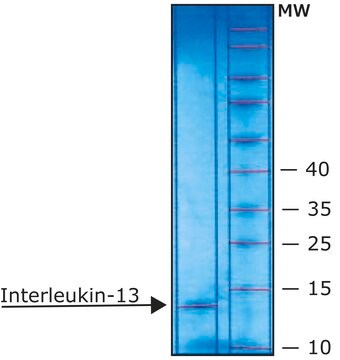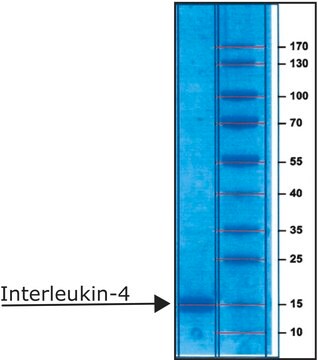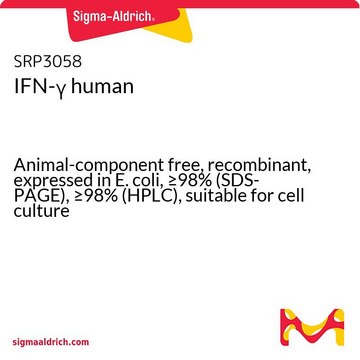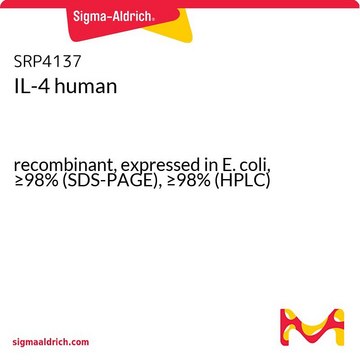SRP3274
IL-13 human
Animal-component free, recombinant, expressed in E. coli, ≥98% (SDS-PAGE), ≥98% (HPLC)
Synonym(e):
NC300
About This Item
Empfohlene Produkte
Biologische Quelle
human
Rekombinant
expressed in E. coli
Assay
≥98% (HPLC)
≥98% (SDS-PAGE)
Form
lyophilized
Wirksamkeit
≥1.0 ng/mL
Mol-Gew.
12.6 kDa
Verpackung
pkg of 10 μg
Verunreinigungen
<0.1 EU/μg endotoxin, tested
Farbe
white to off-white
UniProt-Hinterlegungsnummer
Allgemeine Beschreibung
Biochem./physiol. Wirkung
Physikalische Form
Rekonstituierung
Lagerklassenschlüssel
10 - Combustible liquids
WGK
WGK 3
Flammpunkt (°F)
Not applicable
Flammpunkt (°C)
Not applicable
Hier finden Sie alle aktuellen Versionen:
Analysenzertifikate (COA)
Die passende Version wird nicht angezeigt?
Wenn Sie eine bestimmte Version benötigen, können Sie anhand der Lot- oder Chargennummer nach einem spezifischen Zertifikat suchen.
Besitzen Sie dieses Produkt bereits?
In der Dokumentenbibliothek finden Sie die Dokumentation zu den Produkten, die Sie kürzlich erworben haben.
Kunden haben sich ebenfalls angesehen
Unser Team von Wissenschaftlern verfügt über Erfahrung in allen Forschungsbereichen einschließlich Life Science, Materialwissenschaften, chemischer Synthese, Chromatographie, Analytik und vielen mehr..
Setzen Sie sich mit dem technischen Dienst in Verbindung.










